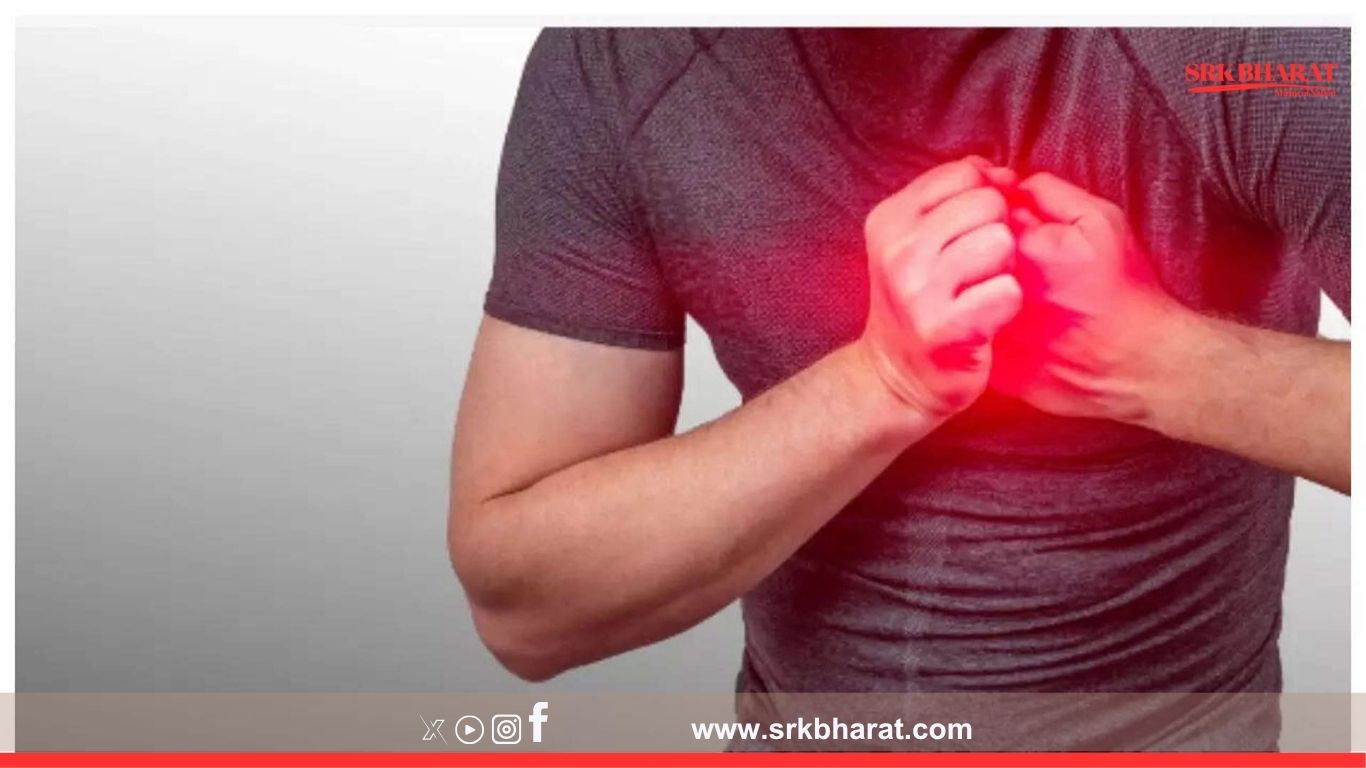Heart attacks, medically known as myocardial infarctions, remain among the leading causes of death globally. While classic symptoms like chest pain, heaviness, and shortness of breath are widely known, doctors warn that uncommon and silent symptoms can precede a major cardiac event, leading to delayed hospitalisation and increased fatality.
Cardiologists emphasise that recognising these lesser-known warning signs can save lives, especially for those with diabetes, high blood pressure, obesity, or a family history of cardiac disease.
1. Elbow or Arm Pain
Pain radiating down the left arm is a known heart attack symptom. However, pain focused specifically around the elbow or even the wrist can be an early warning sign.
Why it happens: The heart and arm nerves share similar pathways. During a heart attack, the brain may misinterpret heart pain as originating from the elbow, forearm, or wrist, a phenomenon called “referred pain.”
Clinical insight: Dr. Arvind Mehta, Senior Cardiologist, Fortis Hospital, explains:
“Patients often come to us complaining of elbow or wrist discomfort assuming it’s muscular strain, only to realise later it was cardiac pain. Any unexplained persistent pain in the left arm, elbow, or wrist, especially if accompanied by fatigue or sweating, should be evaluated immediately.”
2. Profuse Sweating Without Activity
Sweating is normal during exercise or in hot weather. However, sudden, unexplained cold sweats while sitting or resting could indicate an impending heart attack.
Medical reasoning:
- During a heart attack, the nervous system activates a fight-or-flight response, causing clammy, cold sweat even without exertion.
- Such sweating may be accompanied by dizziness, nausea, or palpitations.
3. Teeth and Jaw Pain
Heart-related jaw pain typically starts in the chest and radiates upwards, but in some cases, pain may be felt solely in the jaw, teeth, or even ears.
How it manifests:
- Patients might feel a dull ache, toothache-like sensation, or heaviness in the lower jaw.
- Dental treatments may fail to relieve the pain if its origin is cardiac.
Expert note: Dr. Sneha Sharma, Consultant Cardiologist, says:
“If dental evaluations do not find any cause for sudden jaw or tooth pain, and especially if the person has cardiac risk factors, a cardiology opinion is essential.”
4. Indigestion, Nausea, or Stomach Discomfort
Many heart attack patients, especially women, describe their pain as “gastric discomfort” or indigestion-like burning rather than typical chest pain.
Possible presentations:
- Feeling of bloating, nausea, vomiting, or acid reflux unrelieved by antacids.
- Upper abdominal pain that radiates to the back or chest.
5. Extreme Fatigue and Weakness
Unusual and unexplained fatigue, particularly in women, can signal a silent heart attack in progress.
Why it matters:
- Fatigue results from reduced blood flow to muscles and tissues due to blocked coronary arteries.
- Patients may feel too tired to perform simple tasks like walking to the washroom or climbing stairs.
How Do These Symptoms Differ From Typical Heart Attack Signs?
| Classic Symptoms | Uncommon Symptoms |
|---|---|
| Chest heaviness, squeezing pain | Elbow, wrist, or jaw pain |
| Shortness of breath | Extreme fatigue, dizziness |
| Palpitations | Cold sweat without exertion |
| Radiating pain down entire left arm | Localised elbow or forearm pain |
(Source: Indian Heart Journal, Clinical Guidelines on Acute Coronary Syndromes)
Who Is At Higher Risk for Atypical Symptoms?
- Diabetics: Due to nerve damage (neuropathy), they may not feel typical chest pain.
- Women: More likely to experience silent or atypical symptoms like fatigue, jaw pain, or nausea.
- Elderly patients: Often misinterpret symptoms as age-related weakness or arthritis pain.
Why Ignoring These Signs Can Be Fatal
Dr. Vivek Jain, Director of Cardiology at Medanta, warns:
“Up to 30% of heart attacks are silent, with patients ignoring mild symptoms. When treatment is delayed beyond the golden hour (first 60-90 minutes), heart muscle damage becomes irreversible, leading to heart failure or sudden cardiac death.”
What To Do If You Experience These Symptoms?
- Do not self-medicate with antacids or painkillers if pain persists.
- Seek immediate medical evaluation, especially if symptoms are accompanied by sweating, dizziness, or breathlessness.
- Request an ECG and cardiac enzyme tests at the hospital to rule out myocardial infarction.
- Inform your doctor about any family history of heart disease, diabetes, or lifestyle risk factors.
Preventive Measures to Reduce Heart Attack Risk
| Preventive Step | Benefit |
|---|---|
| Regular exercise (30 mins/day) | Improves heart efficiency and vascular health |
| Healthy diet (low saturated fat, high fibre) | Controls cholesterol, reduces plaque build-up |
| Quit smoking and limit alcohol | Reduces clotting risks and improves circulation |
| Control blood sugar and blood pressure | Prevents arterial damage and blockages |
| Annual cardiac check-up after 40 | Early detection of silent coronary artery disease |
Public Health Implications
Given the increasing incidence of heart attacks among younger populations in India, with cases reported even in mid-20s to early-30s age groups, awareness of atypical symptoms is crucial.
The Indian Heart Association reports:
- 50% of heart attacks in Indian men occur under age 50.
- 25% occur under age 40, attributed to lifestyle stress, poor diet, and genetic predisposition.
Conclusion
While chest pain remains the hallmark of a heart attack, uncommon symptoms like elbow pain, unexplained sweating, jaw pain, indigestion, and fatigue should never be ignored, particularly if you have underlying risk factors. Early recognition and timely hospital care can mean the difference between life and death in cardiac emergencies.
Disclaimer: This article is for educational awareness only and does not replace professional medical consultation. Consult your cardiologist for personalised assessment if you experience any suspicious symptoms.












аренда студии подкастов аренда студии подкастов .
запись подкастов студия https://www.studiya-podkastov-spb4.ru .